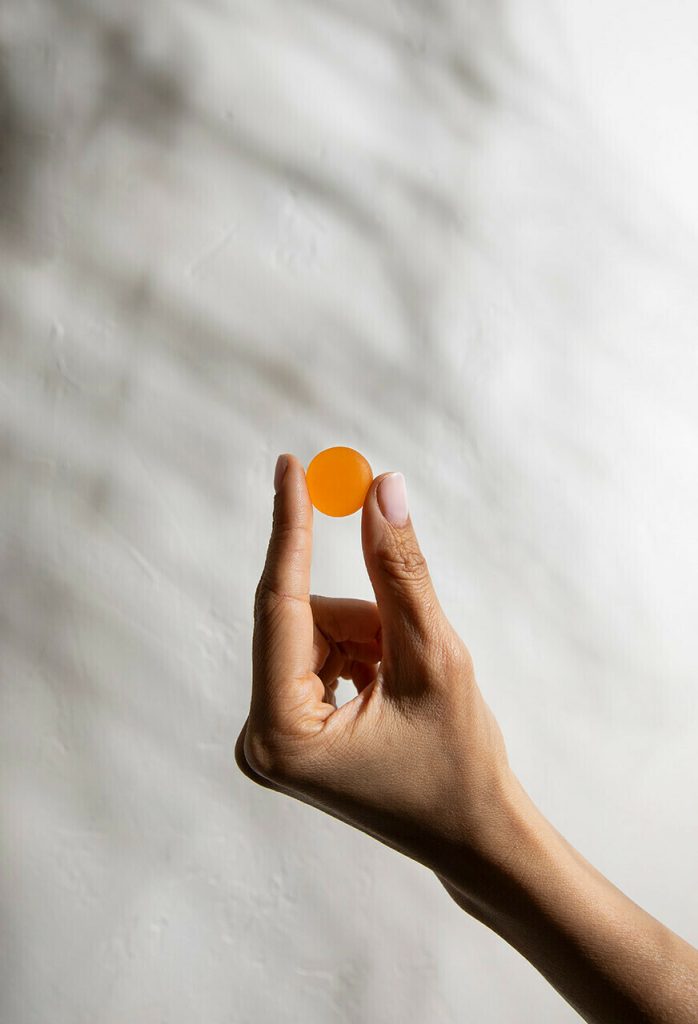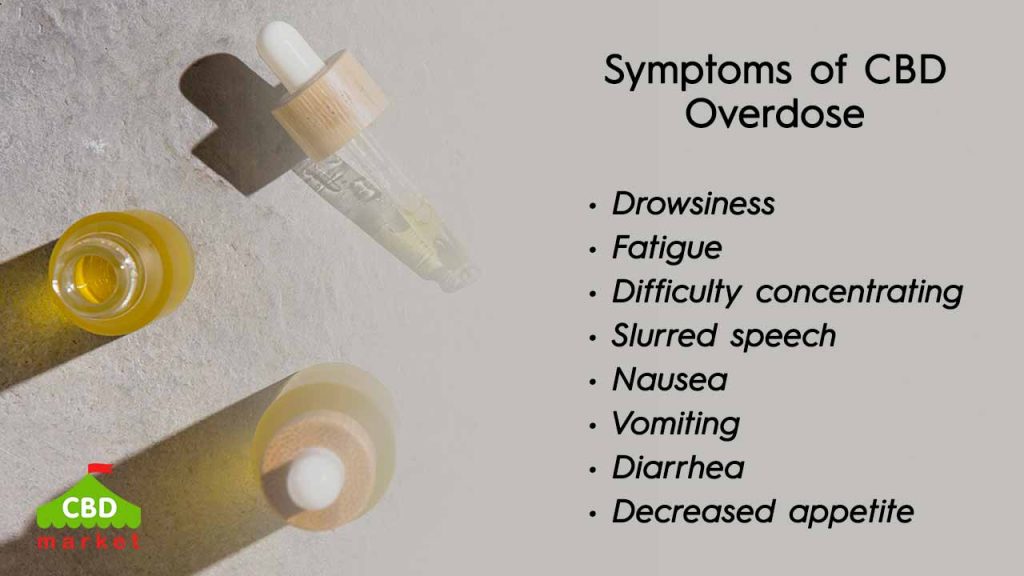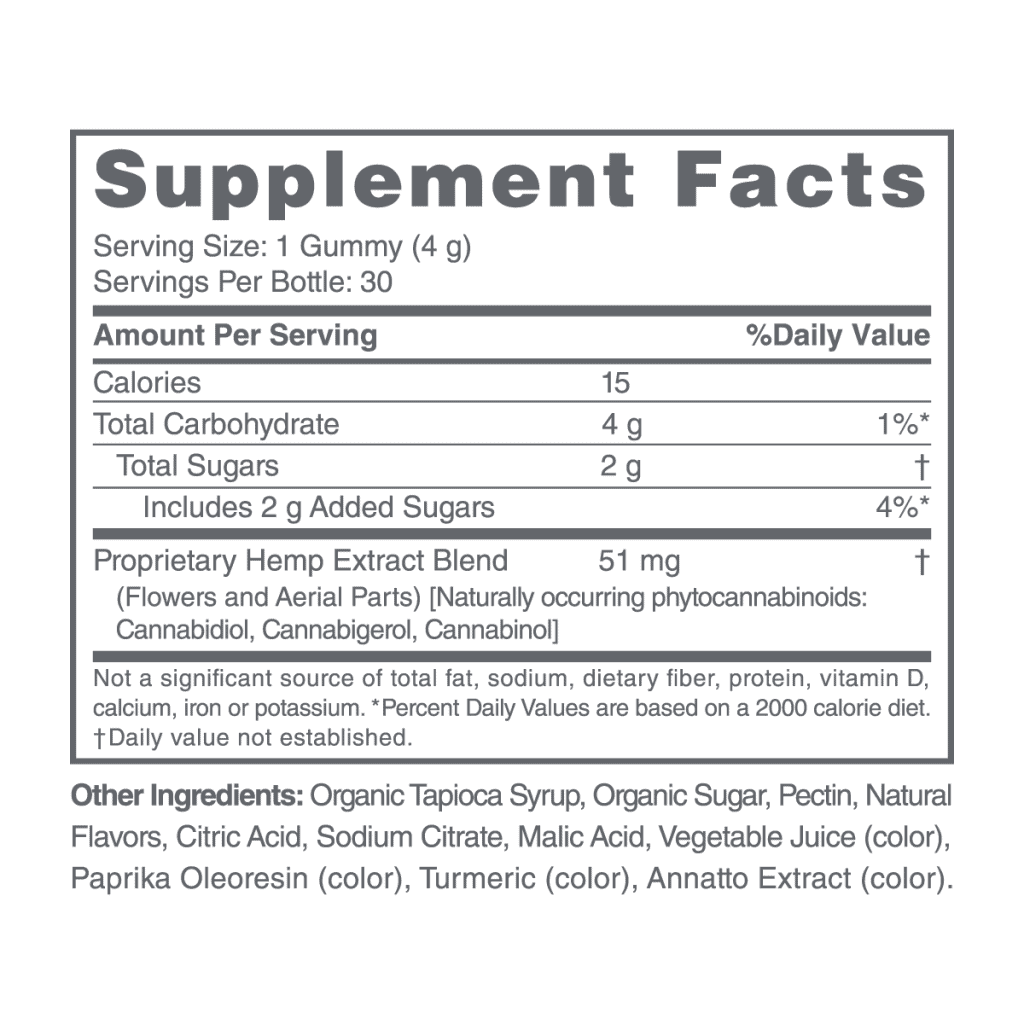Can You Overdose on CBD?
Summarize

Can you overdose on CBD? The answer is not simple because there is not enough research yet.

TL;DR (Too Long; Didn’t Read):
Based on research to date, it would only be possible to overdose on CBD by taking 20000 mg or more of CBD in a single dose. You can experience toxicity or symptoms related to CBD at lower amounts. It is important to follow the recommended dosage amount printed on the CBD product’s label. CBD is well tolerated up to 1500 mg CBD per day. Few people consume that much CBD. Much more research is needed on CBD toxicity and CBD overdose potential.
Table of Contents
There are cases of toxicity which is not the same thing as an overdose. Toxicity refers to the accumulation of a substance over time that leads to symptoms, but it may not necessarily mean it was an overdose. An overdose occurs suddenly when someone takes too much of a substance. Overdose toxicity is the set of toxic reactions to a substance due to taking too much of it. Per research to date, a CBD overdose is possible but unlikely. Some people are more likely to experience toxicity when they do not follow serving suggestions for CBD.
Symptoms of Overdosing on CBD
An overdose due to taking substances is considered a poisoning. People are more likely to overdose on THC because THC is psychotropic, affecting the mental state by binding mostly to the CB1 receptors.
However, you can experience cannabinoid toxicity by overusing cannabis compounds of any kind. There are a limited number of clinical studies concerning overdosing on CBD or on the toxic symptoms people experience when taking different amounts of CBD. Some possible CBD overdose symptoms clinical study patients have experienced include the following.
- Elevated or slowed heart rate
- Drowsiness
- Fatigue
- Difficulty concentrating
- Slurred speech
- Nausea
- Vomiting
- Diarrhea
- Decreased appetite
CBD will not cause you to feel the “high” that goes with overusing THC and will not cause hallucinations. There is a documented case of CBD toxicity due to an overdose of CBD gummies. A man consumed two bags of CBD gummies in a short period, believing they might help reduce the discomfort he was experiencing. He took a total of 370 mg of CBD at once. He was admitted to the hospital where he experienced symptoms that included a drop in his respiration rate, heart rate, and blood pressure. Eighteen hours later he began experiencing a sudden recovery.
One of the points to keep in mind is that CBD may potentially interact with prescription drugs. More research is needed on this subject, but it emphasizes the importance of following recommended dosages and discussing CBD usage with your doctor.

How Much CBD Is Too Much?
An easy answer is to say that taking more than the recommended dosage stated on the product is too much CBD. The real answer is that many factors determine how much CBD is too much to take. They include:
- body weight
- health profile
- metabolic rate
- the endocannabinoid system
- CBD potency
A study published in 2017 found that up to 1500 mg per day for 26 days produced no side effects. There are very few studies on what constitutes a toxic dose. A 2011 study had similar findings. Patients took 1500 mg per day and had no significant side effects. A toxic dose of CBD was approximately 20000 mg of CBD taken in a single dose. That is a huge amount of CBD.
A 2018 study in which patients were given higher doses of 1500 mg to 6000 mg of CBD in single doses over time found the study participants had only mild symptoms at the higher amounts.
It would take a very high amount of CBD for most people to overdose on CBD oil. That does not mean you will not begin noticing side effects at a lesser amount. As mentioned, each person is unique, so it is important to pay attention to how your body reacts each time you take CBD and how it reacts over time with continued use.
Doses up to 200 mg taken daily are well tolerated over a couple of months by some people. Other people cannot consume that much without it causing uncomfortable side effects like drowsiness and feeling light-headed.
Also keep in mind that full-spectrum CBD products have a small amount of THC in them, legally 0.3 percent or less. This is not enough THC to cause a high, but it is possible the THC could contribute to side effects if you experience them.
Proper Dosage of CBD Oil
The proper dosage of CBD oil is the serving amount listed on the product.

Exceeding the recommended serving amount increases the risk of experiencing side effects. CBD products are not regulated by the Food and Drug Administration (FDA), so it is important to buy from a reliable transparent CBD retailer.
The Mayo Clinic suggests finding a CBD dose that will work for you based on scientific research and expert opinion.
| Weight (lbs) | Low Dosage | Medium Dosage | High Dosage |
|---|---|---|---|
| 100-130 | 10-17 mg | 21-25 mg | 30-35 mg |
| 130-160 | 20-27 mg | 27-33 mg | 36-43 mg |
| 160-190 | 29-34 mg | 34-40 mg | 44-50 mg |
| 190-220 | 35-39 mg | 42-50 mg | 52-58 mg |
| 220-250 | 40-44 mg | 51-59 mg | 60-72 mg |
| 250-280 | 45-50 mg | 60-69 mg | 70-85 mg |
| 280+ | 52 mg+ | 75 mg+ | 90 mg+ |
So you can see higher amounts of CBD are well tolerated. It is suggested that you start with 10-20 mg daily for at least a week and increase the dosage slowly to ensure you do not experience undesirable side effects.
Summary
The lack of significant research makes it difficult to give definitive answers about how much CBD oil is too much. The research indicates that it would take an extremely large amount of CBD oil consumed in a single dose to cause an overdose. A CBD oil normally contains 100-1500 mg per bottle or tincture. If you follow the recommended dosage, you are well under any possible toxic amount.
Sources
- https://www.merckmanuals.com/home/drugs/adverse-drug-reactions/overdose-toxicity
- https://pubmed.ncbi.nlm.nih.gov/31161980/
- https://www.fda.gov/consumers/consumer-updates/what-you-need-know-and-what-were-working-find-out-about-products-containing-cannabis-or-cannabis
- https://www.ncbi.nlm.nih.gov/pmc/articles/PMC7233499/
- https://www.ncbi.nlm.nih.gov/pmc/articles/PMC5569602/
- https://www.ncbi.nlm.nih.gov/pmc/articles/PMC5569602/
- https://www.medicinalgenomics.com/wp-content/uploads/2013/01/Bergamaschi_2011.pdf
- https://www.ncbi.nlm.nih.gov/pmc/articles/PMC6223703/
Share this post


0